After she lost her hair from COVID-19, 7-year-old Regina girl excited for 1st vaccine dose
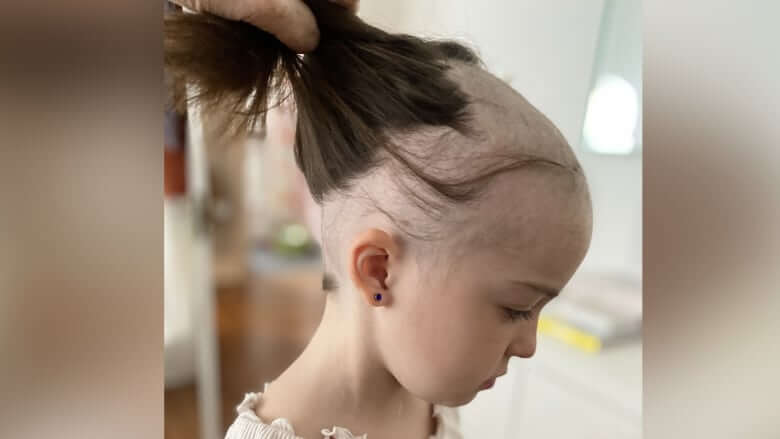
Seven-year-old Cedar Herle squeezed her eyes shut and grabbed onto the fur of a therapy dog as she received her first dose of the COVID-19 vaccine at a Regina clinic over the weekend.
But she never hesitated.
“I want COVID to go away forever and never come back,” she said.
As the push continues for children aged five through 11 to get vaccinated, the curly-haired brunette knows first-hand the long-term effects of the disease. Cedar lost all of her hair after contracting COVID-19 a year ago, and she watched her mother suffer a COVID-related stroke.
“She had to stay in bed lots,” Cedar said.
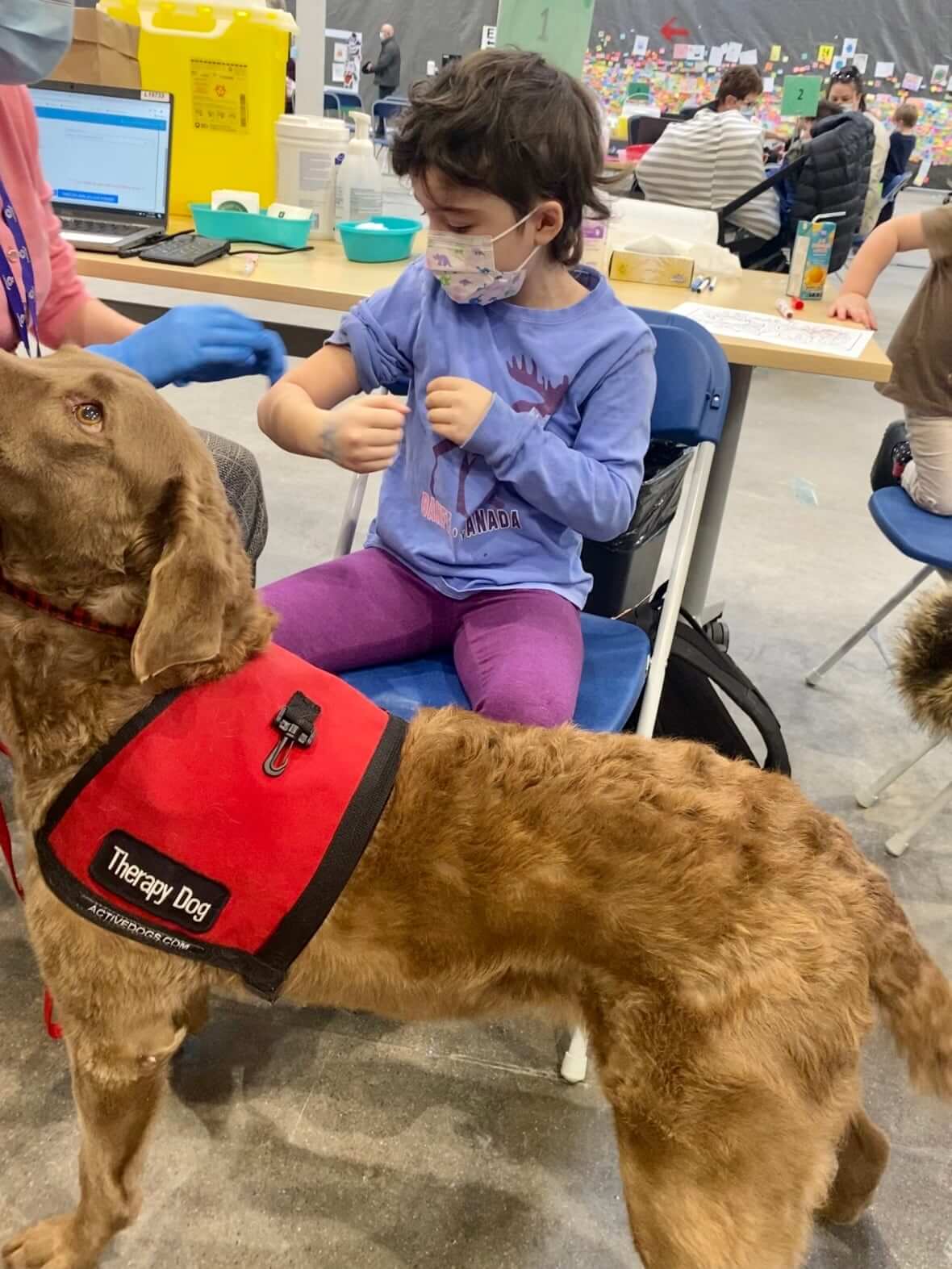
Andrea Herle, a 39-year-old mother-of-three, is still recovering from the long-term effects of the disease. Her physiotherapy doesn’t even include moving her body yet — just breathing exercises.
“We do not want COVID in our house again,” Herle said. “I would never, ever have imagined to be under 40 and have a stroke.”
At first, just an ‘inconvenience’
In November 2020, Herle, a licensed practical nurse who had just returned to work from maternity leave, was caring for COVID-19 patients in their homes.
Then, on Dec. 5, 2020, she woke up drenched in sweat with a pounding heart, body aches and nausea. She knew immediately that she had been infected with the virus that causes COVID-19, but at that moment, she mostly felt annoyed at the “inconvenience” of a 14-day quarantine.
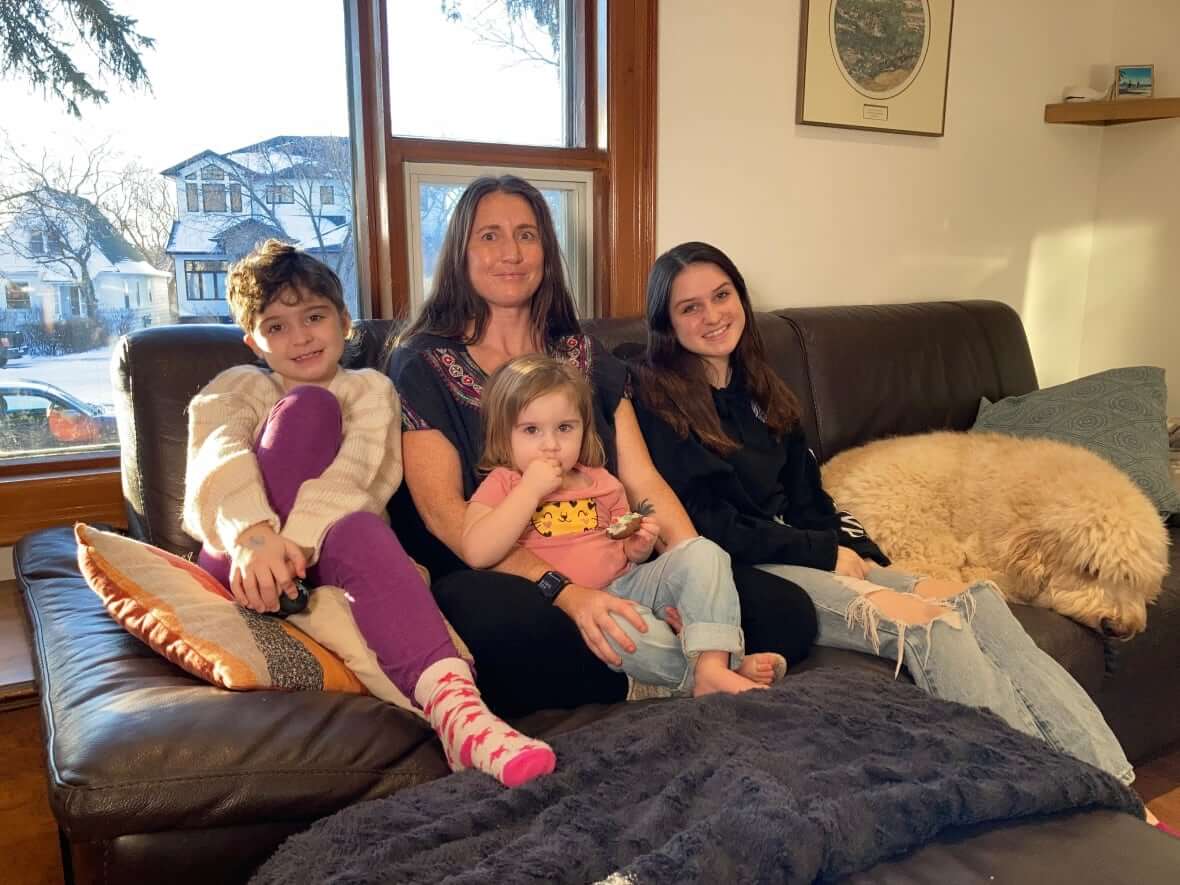
Herle spent most of those two weeks in bed, while her husband and kids had only mild symptoms.
Then, a few weeks later, Cedar started napping a lot, vomiting and losing her hair in clumps. Her parents noticed that the bald spots were getting larger.
“It just happened really fast. Every day she lost hair until she didn’t have any,” Herle said.
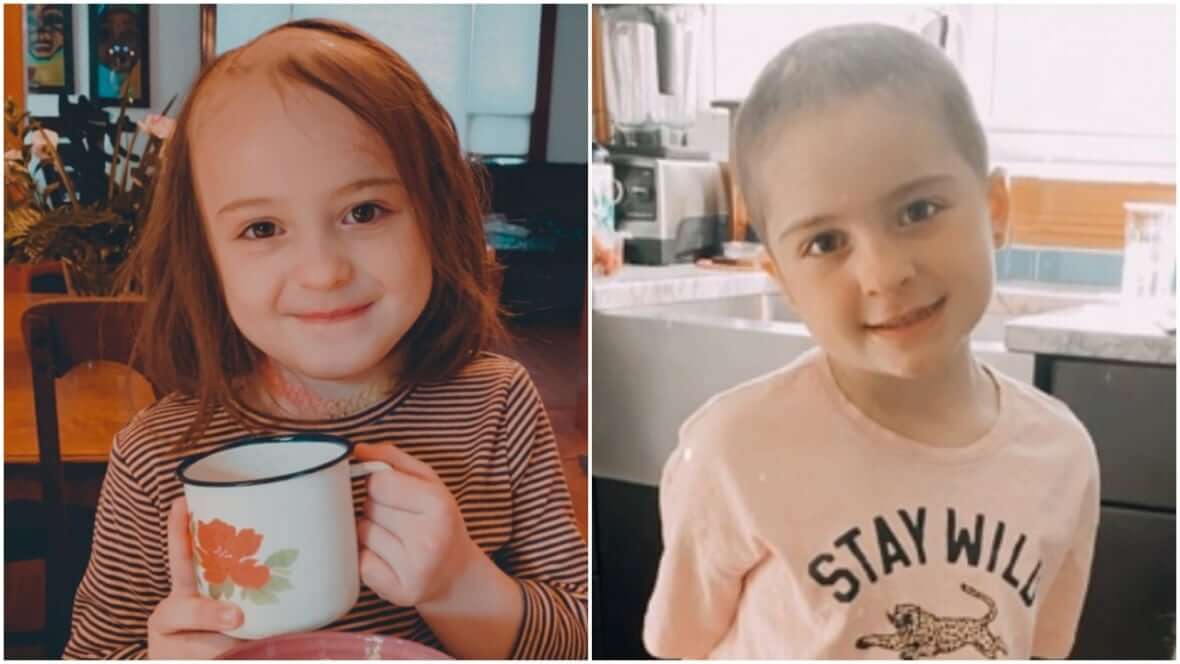
That set off weeks of uncertainty, blood work and consultations with specialists, who concluded that the coronavirus had likely triggered an autoimmune response and alopecia (hair loss). Skin and hair problems are documented effects of the virus, but research is still in its infancy.
A new international registry has begun to track alopecia in people who tested positive for COVID-19.
Code Blue
Meanwhile, Herle was considered “recovered” from her own COVID-19, despite lingering fatigue and brain fog, and she returned to work.
“The first week of February, I just felt sick again. I felt all the COVID symptoms again and I thought, ‘Well, this is so weird,'” she said.
This time, the neurological symptoms scared her.
She couldn’t remember things or form thoughts, her left side was weak and she couldn’t move her fingers. She knew something was “seriously wrong.”
Herle was admitted to Regina General Hospital for nine days for multiple tests. Four neurologists reviewed her case, and medical files confirm that she had “sustained a small stroke that may have been due to COVID-19 related inflammation or prothrombotic state.”
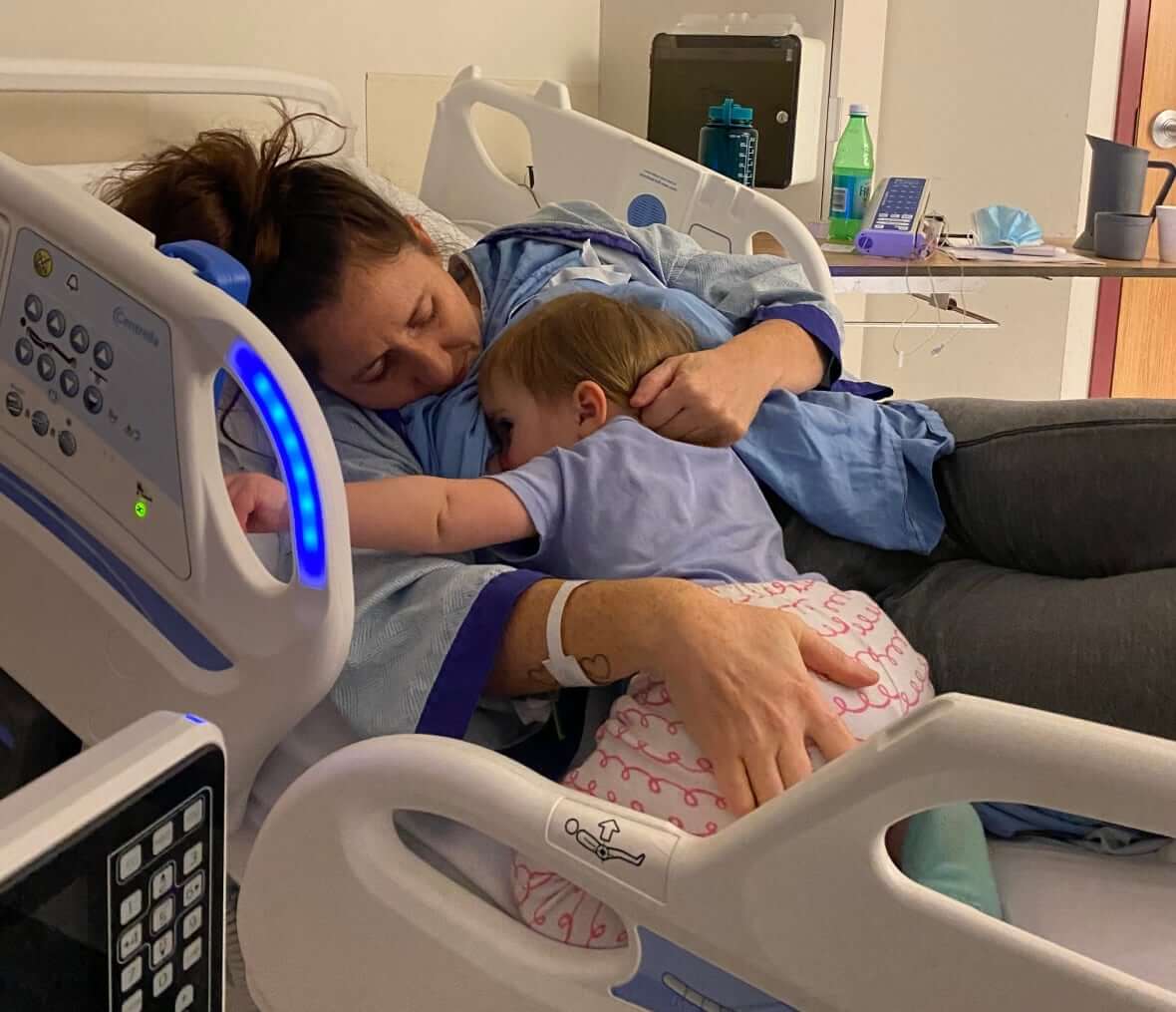
When Herle was in the hospital, her body seemed to shut down, prompting a Code Blue emergency response.
“And I remember my husband opening up my eyes and just yelling at me to breathe. And in that time, I thought, like, ‘Is this it? This can’t be it,'” she recalled.
Ten months later, Herle is still off the job with workers’ compensation benefits for the job-related illness.
She’s working hard to regain her strength but not pushing herself to the point that she’ll suffer setbacks. A neurologist warned her that it could take a year or two for her brain to heal, she said.
Vaccine uptake for children levelled off
The mother has to limit Cedar’s activities so she doesn’t tire out. The girl’s hair is growing back — although it’s now curly and dark-brown instead of straight and light brown.
Herle says her daughter’s vaccination felt like a turning point.
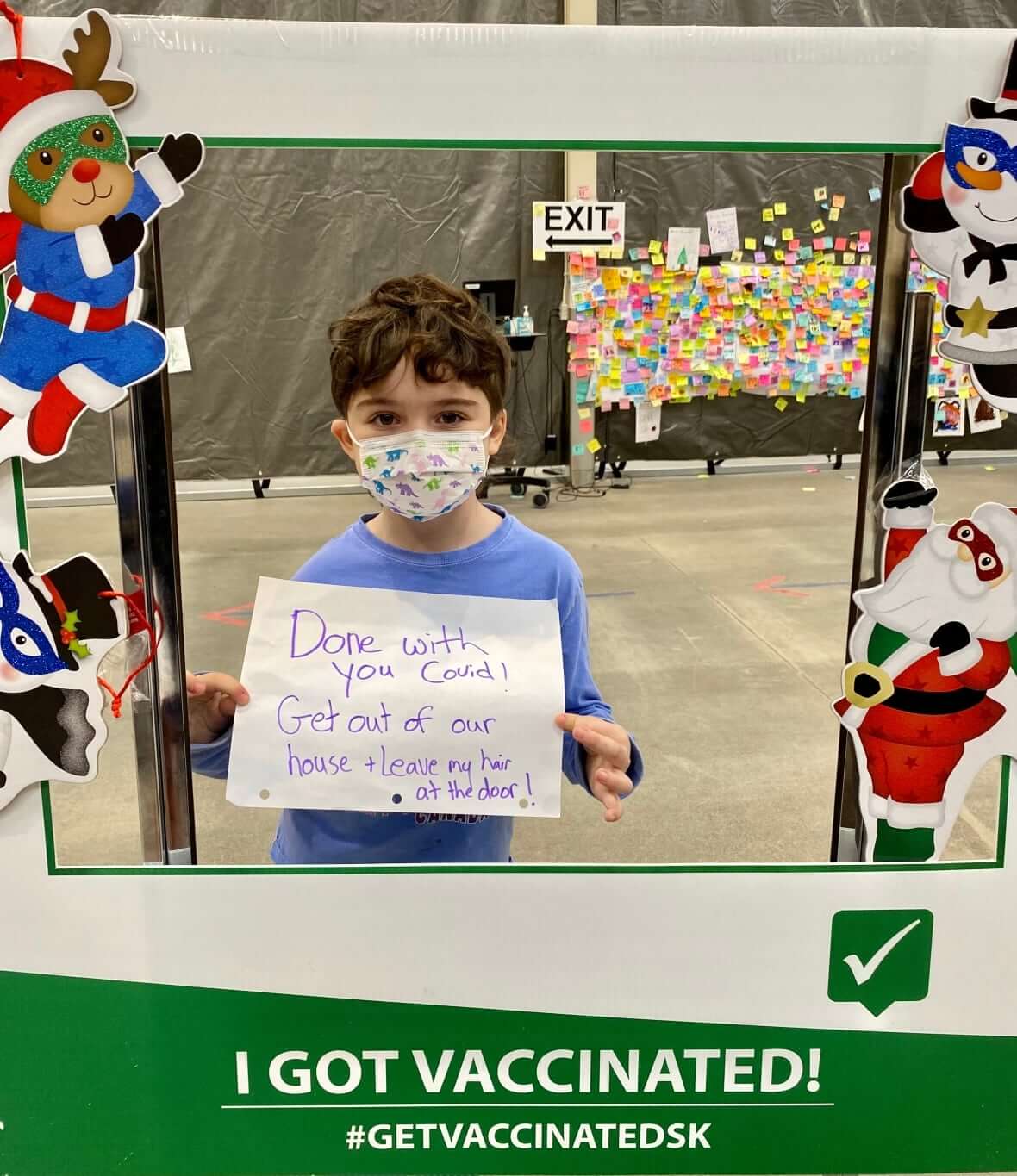
“It’s been a lot of stress. But we’re lucky. We’re very lucky because there’s a lot of people who have come out of this a lot worse,” Herle said.
Cedar is one of 41,824 children in her age group of five- to 11-year-olds to get the vaccine in Saskatchewan — about 37 per cent of the eligible population in that age group — since the pediatric doses were approved in Canada in late November.
Dr. Alexander Wong, an infectious diseases physician at Regina General Hospital, says he’s concerned that the uptake has levelled off sooner than anticipated.
“There was big uptake, you know, in the first week or two, and then we would naturally expect some things to slow down. I think we’re seeing perhaps a bit more hesitancy than we might have actually expected, quite frankly,” he said.
Herle says she hopes her family’s story will remind people that the virus can have an unpredictable — and almost unimaginable — impact.
After Cedar was vaccinated, she held up a sign that read: “Done with you Covid! Get out of our house and leave my hair at the door!”








Redes Sociais - Comentários